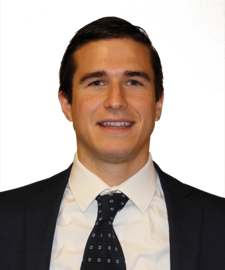Kyle is the newest member of the LRJ Wealth Management Team, joining the firm in November of 2019. He began his career in the financial industry as a Financial Representative with Northwestern Mutual in 2012. After pursuing a unique opportunity to earn his MBA through an accelerated program, Kyle entered the Capital Markets industry where he worked with a notable independent Wall Street firm conducting Equity Research. In that role, Kyle worked as an investment research analyst providing fundamental research on automotive, business services, and retail companies for institutional investors like hedge funds, pension funds, and mutual funds. Kyle will use his past financial planning experience to service the LRJ client base in the areas of wealth management and advanced financial and tax planning. Through this process, Kyle will understand each client’s unique situation in order to create a comprehensive plan to help clients achieve the goals that are most important to them, both financial and personal, which will allow clients to experience peace of mind knowing that they have achieved financial security.
Kyle received a Bachelor of Arts in Business Administration and Criminal Justice while also obtaining his MBA in Management from Baldwin Wallace University; he graduated Magna Cum Laude in both programs. While at BW, Kyle was a top player on the Men’s Tennis Team and continued to remain involved with this lifelong passion as an Assistant Men’s Varsity Tennis Coach while obtaining his MBA. Professionally, Kyle holds Series 7, 63, 86/87 investment licenses and is currently in the process of working towards his CFP® designation.
In his time away from the office, Kyle strives to remain active and is up for anything from biking to ultimate frisbee, simply working out in the gym, and most any sport (especially racquet sports). Additionally, Kyle enjoys traveling, exploring the great outdoors, and trying new restaurants and food.






